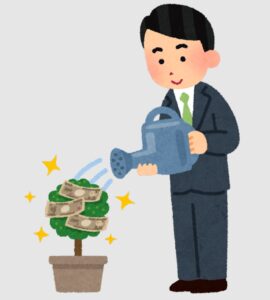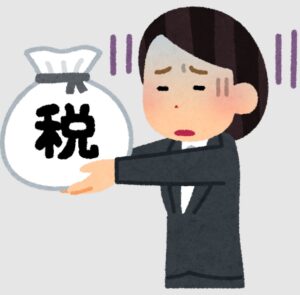管理人オススメコンテンツはこちら
「諸刃の剣になりがち|節税に騙されるな!住宅ローン控除の落とし穴」
〜前回のつづき〜
●本当に効果のある節税方法ランキング解説(つづき)
次は第5位
『住宅ローン控除』(オススメ度★★☆☆☆)
10年間にわたり
住宅ローン残×1%分だけ
税金が安くなるんですね。
節税の上限額は40万円/年です。
だから
住宅ローンの残高が4千万円×1%
これがMAXという事になりますね。
なのでそうなると最大10年間で
400万円の節税にはなるんですね。
平均年収のサラリーマンの場合
これだけで所得税が
ほとんどゼロになる。
買った家がまともなのであれば
最強の節税の一つなんですね。
買った家がまともなのであれば
ですけどね。
ここですね。
これについては
後でまたお話しします。
最大効率で
住宅ローン控除を使う為には
次の条件を満たす
必要が有るんですね。
条件(1)10年後に住宅ローン残高が4千万円になるように
条件(2)色々な銀行を天秤にかけて出来る限り低い金利でお金を借りて
条件(3)10年後でも資産性の有る家
つまり
・高値で売れる
・買った金額以上に
・比較的近い値段で売れるもしくは貸せる
そういう家を狙う
という必要が有るんですね。
今は変動金利0.5%未満で
借りられるという所も有るので
1%の住宅ローン控除を
受ける事が出来るのであれば
支払い利息よりも
節税額の方が大きくなるんです。
これはどういう事かというと
事例を見てみましょう。
計算がよくわからない
という事であれば
何となく流し読みしてください。
・支払い利息:
4千万円×借入金0.5%
=20万円
・節税効果:
4千万円×住宅ローン控除1%
=40万円
となると
借金してるのに
利息を払うどころか
お金をもらってるような感じになって
非常に不思議な状態になります。
ただこれは注意すべきは
マイホームの購入は
不動産投資だという認識を持って
リセールバリューすなわち
また売るときの値段が高い家を買う
というのが
本当にここが全てなんですよ。
こういう家を買えるのであれば
住宅ローンというのは
絶対に使った方が得なんですよ。
でも
ほとんどそういう家というのが
無いんですね。
ほとんどそういった
リセールバリューの高い家に
出会えない。
だから非常に難しいんですね。
損が出る
価値の低い住宅を買って節税しても
経済的には全く意味が無いんですよ。
マイホームを買われる方や
検討される方というのは
本当に覚えておいて欲しいんですね。
つまり2千万円損して
400万円得しても
しょうがないんじゃないですか?
という話です。
仮に
200万円損して
400万円得するというのであれば
トータルで得するからOK
という話なんですけど
何でもかんでも買ってしまって
負債を買ってしまって
2千万円損して400万円得するって
トータル1600万円損してますよね?
という話です。
ではこういういい家すなわち
資産価値の高い家を買うには
どうしたらいいのかというのは
今までもお話ししてきました。
うまく活用出来たらいいんですけど
ここは諸刃の剣になりがちなので
気をつけてください。
そういう意味で★★☆☆☆なんです。
〜〜〜つづく〜〜〜
Special Thanks college president Ryo.
●おまけ
≪≪Chat-GPTくんによる要約→perplexityちゃんによる文章まとめ≫≫
住宅ローン控除は、10年間にわたり住宅ローン残高の1%分が所得税などから控除され、最大で年間40万円、10年間で400万円の節税が可能な制度です。特に現在は低金利で借りられるため、支払う利息よりも節税額が上回るケースもあります。
しかし、この控除を最大限活用するには、「10年後にローン残高が4,000万円程度残ること」「できるだけ低金利で借りること」「10年後も高値で売れる資産価値の高い家を選ぶこと」が重要です。もし資産価値の低い住宅を購入すると、節税額以上の損失が出ることもあり、経済的なメリットは薄れます。
したがって、住宅ローン控除は条件を満たせば非常に有効ですが、慎重な物件選びが不可欠であり、万人向けとは言えません。
Citations:
[1] https://www.aeonbank.co.jp/column/mortgageloan/koujo/seido/
[2] https://www.j-anshin.co.jp/column/shinchiku/a91
[3] https://abc-housing.asahi.co.jp/sumai/kurashi_column/485/
[4] https://suumo.jp/article/oyakudachi/oyaku/ms_shinchiku/ms_money/jutakuloan_genzei/
[5] https://l-housing.net/column/202501genzei/
[6] https://ieul.jp/column/articles/30488/
[7] https://taninakamiki.com/2024/12/27/2025loankoujo/
[8] https://houseclouver.jp/resale-value/
[9] https://kuramore.jp/article/1006/
[10] https://www.o-uccino.jp/chuko/sp/shisan/p5.cfm
[11] https://www.orixbank.co.jp/column/article/343/
[12] https://100years-company.jp/column/article-950172/
[13] https://invest.kansai-mansion.jp/column/save-on-taxes-with-mortgage-deductions
[14] https://www.re-guide.jp/assess/docs/sell/property_value.html
[15] https://oita-soken.jp/blog/30023/
[16] https://note.com/koso_yamamoto/n/n26f369920f03
[17] https://mirai-f.co.jp/column1/新築建売のリセールバリューの考え方/
[18] https://life-soleil.jp/loan-arrears/q-and-a/asset-value/
≪≪Chat-GPTくんによる英訳≫≫
~Continuation from the previous section~
【Explanation of Truly Effective Tax Saving Methods (continued)】
Now, moving on to #5:
Mortgage Loan Deduction (Recommendation: ★★☆☆☆)
For 10 years,
you can reduce your taxes by 1% of your outstanding mortgage loan amount each year.
The maximum tax savings is ¥400,000 per year.
So if your loan balance is ¥40 million,
you’ll hit that maximum (¥40 million × 1%).
That means over 10 years,
you could save up to ¥4 million in taxes.
For an average salaried employee,
this alone could nearly eliminate their income tax.
If the home you bought is a decent one,
this becomes one of the strongest tax-saving strategies.
If the home is decent, that is.
That’s the key point.
We’ll revisit this part later.
To use the mortgage loan deduction most efficiently,
you need to meet the following conditions:
Condition (1): Have an outstanding mortgage balance of ¥40 million after 10 years.
Condition (2): Shop around various banks and borrow at the lowest interest rate possible.
Condition (3): Own a home that still has asset value after 10 years.
In other words:
A property that can be sold at a high price
A property that can be sold at or above the purchase price
Or at least rented or sold at a similar price
You need to aim for that kind of property.
Currently, you can find mortgage rates under 0.5%,
so if you qualify for the 1% mortgage deduction,
the tax benefit can exceed the interest you’re paying.
To explain that clearly, here’s an example:
(If the calculations are confusing, feel free to just skim through.)
Interest paid:
¥40 million × 0.5% interest = ¥200,000
Tax savings:
¥40 million × 1% deduction = ¥400,000
So even though you’re in debt,
you’re not really paying interest—
it’s as if you’re getting money back,
which is a rather strange situation.
However, what’s important here is to understand
that buying a home is a real estate investment.
That means you must buy a property with high resale value,
i.e., something you can sell for a good price later on.
This is the entire point.
If you can find such a home,
then using a mortgage loan
is absolutely beneficial.
But in reality,
homes like that are extremely rare.
It’s hard to find properties with strong resale value.
And that makes things very difficult.
If you buy a low-value home and only save on taxes,
you may end up losing much more financially.
This is something that home buyers or people considering it
must remember.
For example, if you lose ¥20 million on the value of your home
but only save ¥4 million in taxes—
is that really worth it?
Not really.
Now, if you lose ¥2 million
but save ¥4 million in taxes,
then it’s a net gain and that’s fine.
But buying just any home—
especially one that turns into a liability,
If you lose ¥20 million and only save ¥4 million,
you’re down ¥16 million overall.
So the question becomes,
how do you find one of those rare “good homes”
with high asset value?
We’ve talked about that in the past too.
If you can take advantage of this correctly, it’s great—
but it can be a double-edged sword,
so be careful.
That’s why this method is rated ★★☆☆☆.
Special Thanks OpenAI and Perplexity AI, Inc








